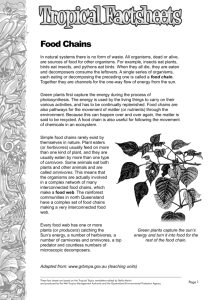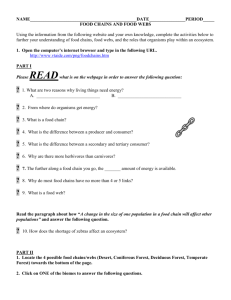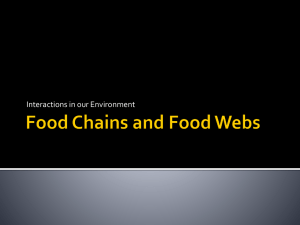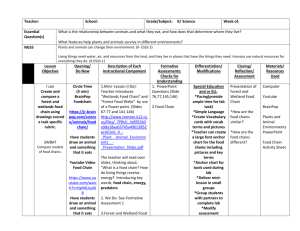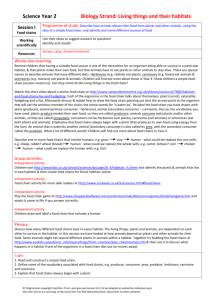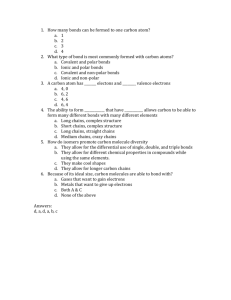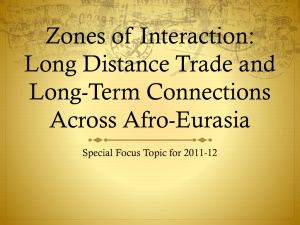John McVe
advertisement
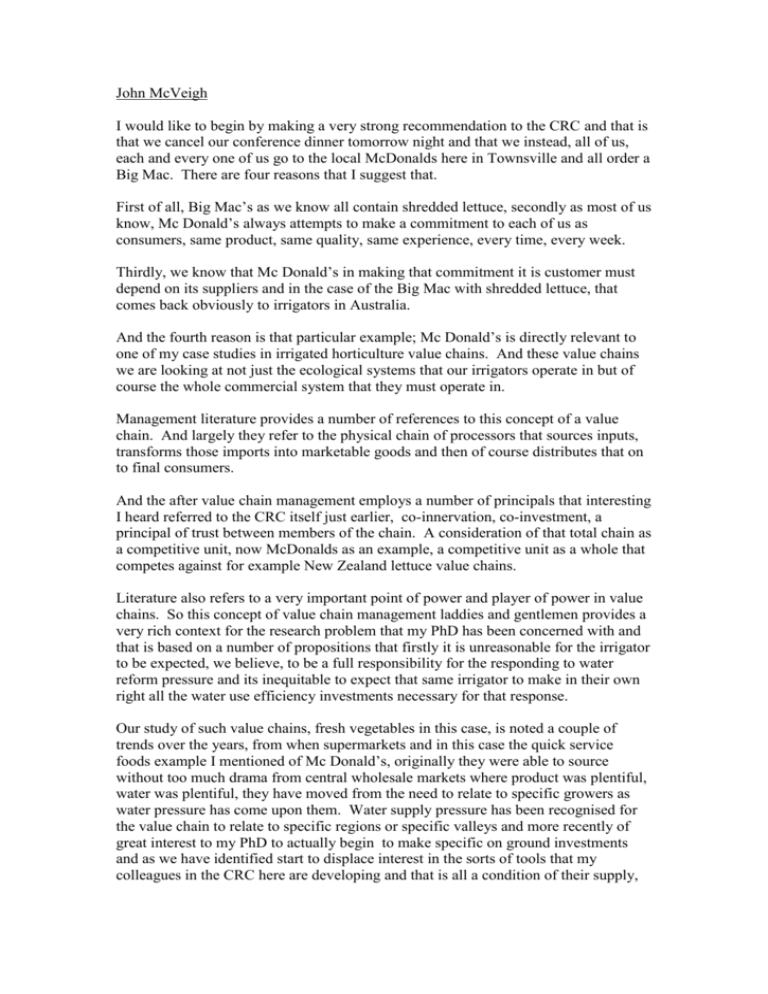
John McVeigh I would like to begin by making a very strong recommendation to the CRC and that is that we cancel our conference dinner tomorrow night and that we instead, all of us, each and every one of us go to the local McDonalds here in Townsville and all order a Big Mac. There are four reasons that I suggest that. First of all, Big Mac’s as we know all contain shredded lettuce, secondly as most of us know, Mc Donald’s always attempts to make a commitment to each of us as consumers, same product, same quality, same experience, every time, every week. Thirdly, we know that Mc Donald’s in making that commitment it is customer must depend on its suppliers and in the case of the Big Mac with shredded lettuce, that comes back obviously to irrigators in Australia. And the fourth reason is that particular example; Mc Donald’s is directly relevant to one of my case studies in irrigated horticulture value chains. And these value chains we are looking at not just the ecological systems that our irrigators operate in but of course the whole commercial system that they must operate in. Management literature provides a number of references to this concept of a value chain. And largely they refer to the physical chain of processors that sources inputs, transforms those imports into marketable goods and then of course distributes that on to final consumers. And the after value chain management employs a number of principals that interesting I heard referred to the CRC itself just earlier, co-innervation, co-investment, a principal of trust between members of the chain. A consideration of that total chain as a competitive unit, now McDonalds as an example, a competitive unit as a whole that competes against for example New Zealand lettuce value chains. Literature also refers to a very important point of power and player of power in value chains. So this concept of value chain management laddies and gentlemen provides a very rich context for the research problem that my PhD has been concerned with and that is based on a number of propositions that firstly it is unreasonable for the irrigator to be expected, we believe, to be a full responsibility for the responding to water reform pressure and its inequitable to expect that same irrigator to make in their own right all the water use efficiency investments necessary for that response. Our study of such value chains, fresh vegetables in this case, is noted a couple of trends over the years, from when supermarkets and in this case the quick service foods example I mentioned of Mc Donald’s, originally they were able to source without too much drama from central wholesale markets where product was plentiful, water was plentiful, they have moved from the need to relate to specific growers as water pressure has come upon them. Water supply pressure has been recognised for the value chain to relate to specific regions or specific valleys and more recently of great interest to my PhD to actually begin to make specific on ground investments and as we have identified start to displace interest in the sorts of tools that my colleagues in the CRC here are developing and that is all a condition of their supply, by saying to farmers we want to invest with you, we want see you using these tools because we need a consistent supply of quality. Indeed those characteristics we believe are enabling us to finalise a value chain management model that we be applying to most irrigated Australian Agri business value chains. Its interesting therefore that for a value chain management prospective to see that the base as power in these value chains has started to shift, has started to shift from the traditional for example a dominant supermarket or in the case of Mc Donald’s QSF, (Quick Service Food) organisations to actually now lie in the environment and that power that the environment is displaying in water reform pressure is forcing value chains as a whole to adopt and pursue sustainable irrigation in a triple bottom line sense.
